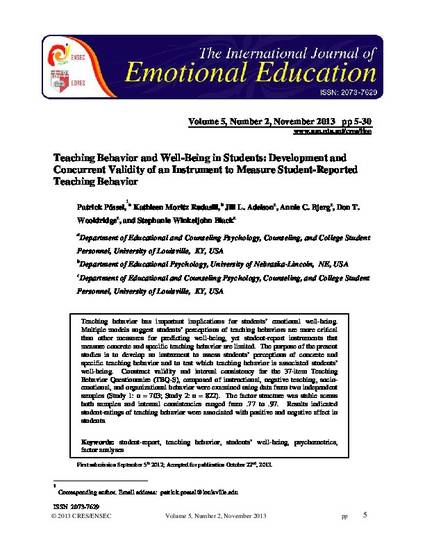
Teaching behavior has important implications for students’ emotional well-being. Multiple models suggest students’ perceptions of teaching behaviors are more critical than other measures for predicting well-being, yet student-report instruments that measure concrete and specific teaching behavior are limited. The purpose of the present studies is to develop an instrument to assess students’ perceptions of concrete and specific teaching behavior and to test which teaching behavior is associated students’ well-being. Construct validity and internal consistency for the 37-item Teaching Behavior Questionnaire (TBQ-S), composed of instructional, negative teaching, socioemotional, and organizational behavior were examined using data from two independent samples (Study 1: n = 703; Study 2: n = 822). The factor structure was stable across both samples and internal consistencies ranged from .77 to .97. Results indicated student-ratings of teaching behavior were associated with positive and negative affect in students.
Possel, Patrick, Kathleen Moritz Rudasill, Jill L. Adelson, Annie C. Bjerg, Don T. Wooldridge and Stephanie Winkeljohn Black. 2013. "Teaching Behaviour and Well-Being in Students: Development and Concurrent Validity of an Instrument to Measure Student-Reported Teaching Behaviour." International Journal of Emotional Education 5(2): 5-30.

This article was originally published in the open access International Journal of Emotional Education, volume 5, issue 2, in November 2013.